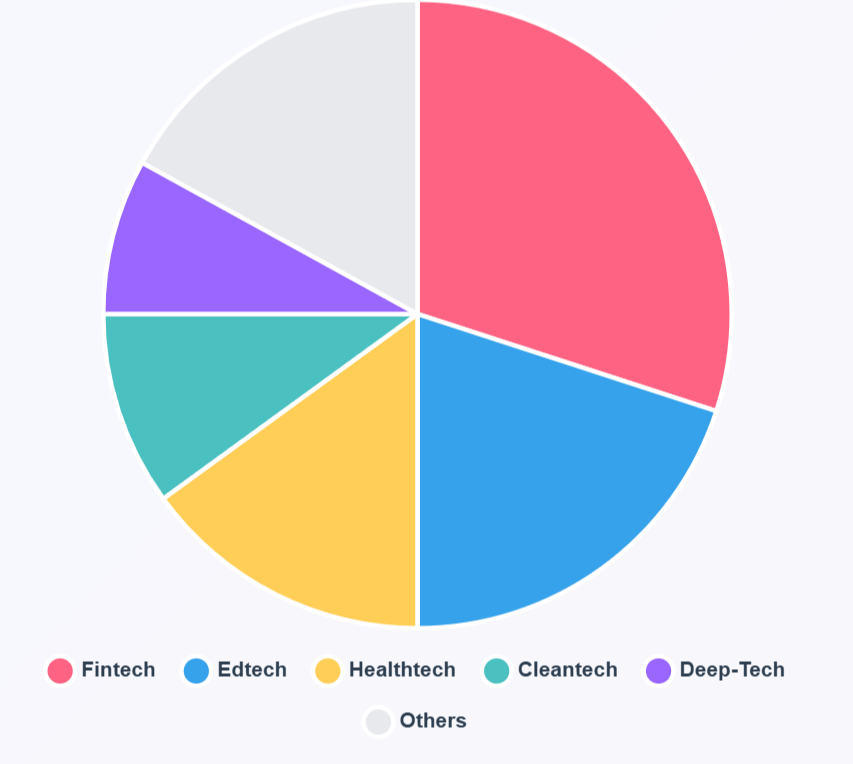India’s startup ecosystem, the third-largest globally, is a vibrant hub of innovation, with over 1.57 lakh startups and 100+ unicorns as of December 2024. Fueled by a young, tech-savvy population, government initiatives like Startup India, and $141 billion in funding from 2014 to mid-2023, the ecosystem is poised for exponential growth. However, challenges like regulatory hurdles, limited R&D investment, and funding concentration in urban clusters persist. For researchers, this dynamic landscape offers rich opportunities to explore critical trends and gaps. Below are five compelling research topics, supported by data, insights, and a chart to guide your investigation into India’s startup ecosystem.
Table of Contents
Research Topics for India’s Startup Ecosystem
- Impact of Regulatory Frameworks on Startup Growth: India’s high crypto taxes and ambiguous policies create barriers for sectors like blockchain and fintech. Research could analyze how policies like the Startup India Seed Fund Scheme (SISFS) or tax exemptions influence startup scalability, particularly in emerging tech sectors. Investigating the balance between regulation and innovation could provide insights into fostering a startup-friendly environment.
- Deep-Tech Innovation and Industry-Academia Collaboration: With deep-tech funding rising in 2023, startups in AI, blockchain, and semiconductors are gaining traction. Research could explore how partnerships with institutions like IITs and ISRO drive innovation, drawing parallels with global models like NASA-SpaceX collaborations. This topic could assess the role of initiatives like the IndiaAI Mission in scaling high-tech ventures.
- Geographical Disparities in Startup Activity: Despite 51% of startups emerging from Tier II and III cities, 92% of funding remains concentrated in Bengaluru, Delhi-NCR, and Mumbai. A study could investigate why non-metro startups create more jobs relative to funding and propose strategies to decentralize investment, such as expanding programs like Startup20.
- Women Entrepreneurs in the Startup Ecosystem: Women-led startups received only 2.3% of venture capital in 2020, highlighting severe underrepresentation. Research could examine barriers to funding and growth for women entrepreneurs, evaluating the impact of policies targeting inclusive entrepreneurship and their effectiveness in replicating success across regions.
- Sustainability and Cleantech Innovation: Cleantech startups secured $861 million in 2023, driven by India’s net-zero emissions goal by 2070. A study could explore how government subsidies and initiatives like the Production-Linked Incentive (PLI) scheme support cleantech innovation, assessing their potential to address local challenges in Tier II and III cities.
Data Table: Key Metrics of India’s Startup Ecosystem (2024)
| Metric | Value | Insight |
|---|---|---|
| Total Startups | 1.57 lakh | Third-largest globally, up from 502 in 2016 |
| Funding (2014-H1 2023) | $141 billion | 66% CAGR in seed-stage funding (2017-2022) |
| Unicorns | 100+ | Valued at $500 billion collectively |
| Funding Concentration | 92% in 3 clusters | Bengaluru, Delhi-NCR, Mumbai dominate |
| Deep-Tech Funding (2023) | Higher than 2022 | Growing investor interest in AI, blockchain, semiconductors |
| Cleantech Funding (2023) | $861 million | Supports net-zero emissions target by 2070 |
| Women-Led Funding (2020) | 2.3% of total VC | Indicates need for inclusive policies |
Chart: Funding Distribution by Sector (2023)

Insights for Researchers
- Policy Impact: The Startup India initiative has catalyzed growth, but regulatory clarity is crucial for sectors like fintech and blockchain to scale globally.
- Emerging Hubs: Tier II and III cities show job creation potential, but funding disparities limit their growth. Research into decentralized investment models could unlock inclusive entrepreneurship.
- Deep-Tech Potential: With low R&D spending (0.65% of GDP), industry-academia partnerships are vital for deep-tech innovation, offering a competitive edge globally.
- Sustainability Focus: Cleantech’s rise aligns with India’s environmental goals, making it a critical area for research into scalable, localized solutions.
- Diversity Gaps: Addressing underrepresentation of women entrepreneurs requires targeted policies and mentorship programs to ensure equitable growth.
Conclusion
India’s startup ecosystem is a powerhouse of innovation, but its potential is curtailed by structural challenges. Researching regulatory impacts, deep-tech collaborations, geographical disparities, gender inclusivity, and cleantech innovation can provide actionable insights to strengthen the ecosystem. By addressing these areas, researchers can contribute to policies and strategies that propel India toward becoming a global entrepreneurial leader, leveraging its demographic dividend and digital infrastructure.
also read : 7 Indian States Supercharging the Startup Revolution
Last Updated on: Tuesday, July 22, 2025 3:36 pm by Siddhant Jain | Published by: Siddhant Jain on Tuesday, July 22, 2025 3:33 pm | News Categories: Business, News, Startups, Tech, Trending